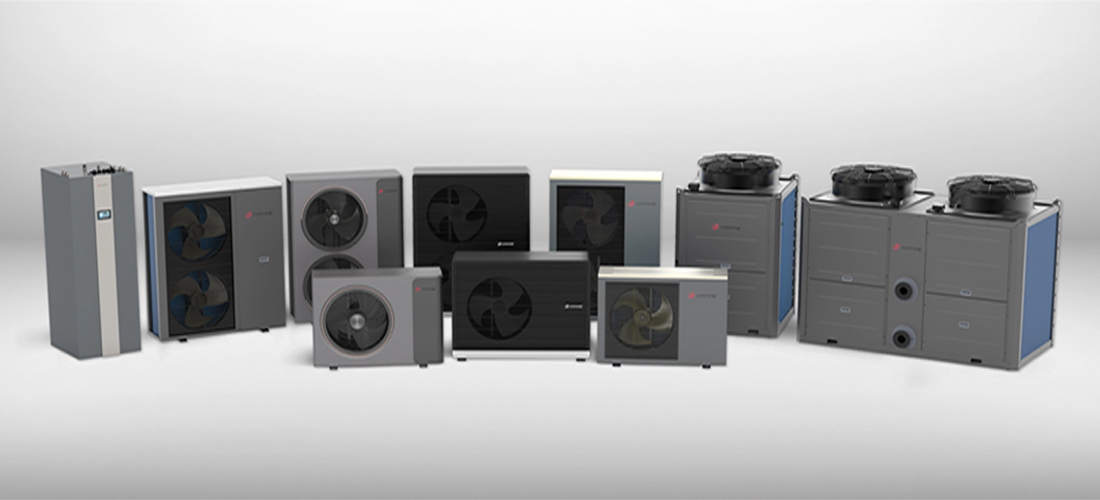When it comes to maintaining a comfortable indoor environment, homeowners often find themselves choosing between a heat pump HVAC system and a traditional HVAC system. Both options have their unique advantages and disadvantages, and understanding these can help you make an informed decision. Now we will delve into the key differences, energy efficiency, cost implications, and longevity of heat pump HVAC systems compared to traditional HVAC systems. Additionally, we will highlight the role of heat pump suppliers and the benefits of purchasing heat pumps wholesale.
A heat pump HVAC system is a versatile unit capable of both heating and cooling your home. Unlike traditional air conditioners, which only provide cooling, heat pumps can reverse their operation to provide heating during colder months. This dual functionality makes heat pumps an attractive option for homeowners looking for an all-in-one solution.
One of the most significant advantages of a heat pump HVAC system is its energy efficiency. Heat pumps are known for their high Seasonal Energy Efficiency Ratio (SEER) ratings, which measure the cooling output divided by the total electric energy input during a typical cooling season. Traditional HVAC systems, particularly those relying on furnaces for heating, often have lower SEER ratings.
Heat pumps can achieve efficiency levels ranging from 175% to 300% for air-source models and up to 600% for geothermal models. This means that for every unit of electricity consumed, heat pumps can produce multiple units of heating or cooling. In contrast, traditional HVAC systems, especially those using fossil fuels, are less efficient and more costly to operate.
The initial cost of installing a heat pump HVAC system can be higher than that of a traditional HVAC system. However, the long-term savings on energy bills often offset this initial investment. Additionally, purchasing heat pumps wholesale can significantly reduce the upfront cost, making it a more affordable option for homeowners and businesses alike.
When considering the cost, it’s also essential to factor in the potential need for a backup heating system. While air-source heat pumps may struggle in extremely low temperatures, geothermal heat pumps can provide consistent heating without the need for additional systems. This can further reduce long-term costs and simplify maintenance.
The lifespan of a heat pump HVAC system is generally comparable to that of a traditional HVAC system, with air-source heat pumps lasting around 10 to 15 years and geothermal systems potentially lasting up to 50 years. Regular maintenance is crucial for both types of systems to ensure optimal performance and longevity.
Heat pumps require less maintenance than traditional HVAC systems because they have fewer mechanical components. This can result in lower maintenance costs over the system’s lifetime. Additionally, many heat pump suppliers offer extended warranties and maintenance packages, providing peace of mind for homeowners.

Heat pumps are more environmentally friendly than traditional HVAC systems. They use electricity rather than fossil fuels, reducing greenhouse gas emissions. This makes them an excellent choice for environmentally conscious homeowners looking to reduce their carbon footprint.
Heat pumps offer superior versatility compared to traditional HVAC systems. They can provide both heating and cooling, making them suitable for year-round use. This eliminates the need for separate heating and cooling systems, simplifying installation and reducing space requirements.
Moreover, heat pumps can provide more consistent and even heating and cooling, enhancing overall comfort. Traditional HVAC systems, particularly those using forced-air heating, can create hot and cold spots within the home, leading to uneven temperatures and reduced comfort.
In the debate between heat pump HVAC systems and traditional HVAC systems, heat pumps offer several compelling advantages, including higher energy efficiency, lower long-term costs, and reduced environmental impact. While the initial investment may be higher, purchasing heat pumps wholesale and working with reputable heat pump suppliers can make this option more affordable.
AMITIME stands out as a prominent Chinese manufacturer of heat pumps and a top supplier of energy-efficient heat pumps for the European market. Boasting over two decades of expertise in researching and developing air source heat pumps utilizing DC inverter technology, we provide an extensive range of products. Our offerings include DC inverter air source heat pumps, heat pumps designed for commercial buildings, swimming pool heat pumps, and ultra-thin hydronic fan coils, etc. As a leading heat pump factory in China, we are committed to fulfilling customer requirements by delivering OEM/ODM solutions to our global distributors and partners.
Ultimately, the choice between a heat pump HVAC system and a traditional HVAC system will depend on your specific needs, budget, and environmental considerations. By understanding the key differences and benefits of each option, you can make an informed decision that best suits your home and lifestyle.